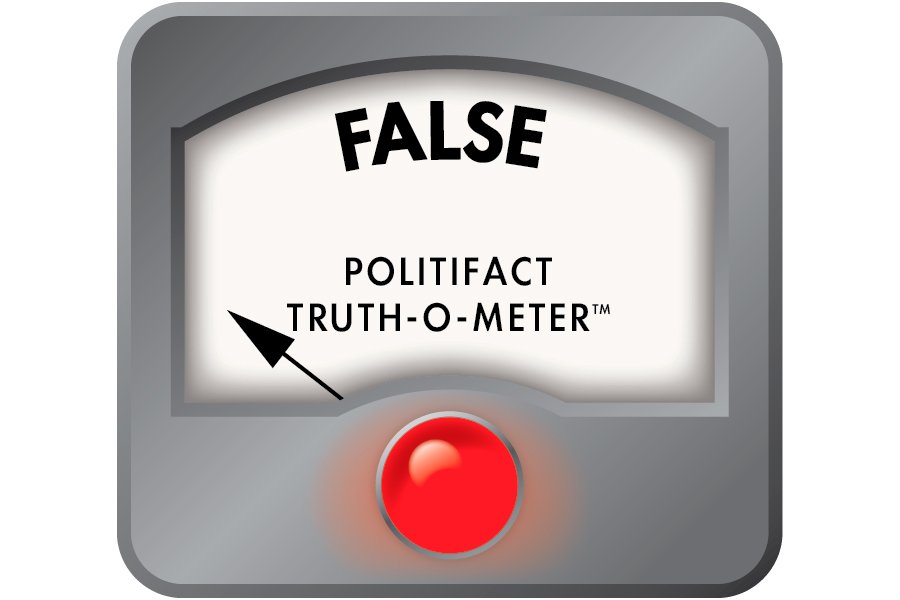” said Burns. “The impact could be significant.”
LaLota’s claim that the budget resolution would protect Medicaid by removing “illegals from the rolls” is also inaccurate. Medicaid is generally not available to undocumented immigrants. It covers only legal residents and citizens.
LaLota’s statement that the budget resolution would protect Medicaid by instituting work requirements for able-bodied adults is also misleading. Such requirements have been proposed in some states, but they have not been shown to reduce Medicaid enrollment significantly. They could, however, pose challenges for enrollees, providers, and states.
LaLota’s assertion that the budget resolution would protect Medicaid by eliminating waste, fraud, and abuse is also unlikely to yield substantial savings. Medicaid already has robust program integrity efforts, and further reductions in fraud are challenging, experts say.
Medicaid spending has been a target for cuts in the past, experts note, and it’s a large and growing part of the federal budget. But the program is also popular, with nearly 70% of Americans favoring increased or stable spending on the program.
What happens next is unclear. The Senate has yet to act on the resolution. Some changes could be made before it is passed.
In the meantime, LaLota’s constituents, like others across the country, will be watching to see how — or if — Medicaid is affected.
This article was produced by Kaiser Health News, which publishes KHN, an editorially independent program of KFF (Kaiser Family Foundation). KFF is a nonprofit organization that provides health information. It is not affiliated with Kaiser Permanente.
.
The article discusses Rep. Nick LaLota’s recent vote on a budget resolution that could potentially impact Medicaid. LaLota claimed that the resolution would protect Social Security, Medicare, and Medicaid while cutting spending elsewhere. However, experts have pointed out inaccuracies in his statements.
The House budget resolution calls for significant spending cuts across various government areas, potentially putting Medicaid at risk. President Donald Trump has stated that he won’t harm Medicaid, Medicare, and Social Security benefits, but Democrats have expressed concerns about the proposed cuts.
A KFF tracking poll shows widespread public support for Medicaid, indicating that efforts to cut the program may face political challenges. LaLota’s claim that the resolution would protect Medicaid by removing “illegals from the rolls” and instituting work requirements has been criticized for being inaccurate and misleading.
Experts note that Medicaid is a vital program that provides health coverage to millions of Americans, and any cuts could have significant impacts. The resolution does not specify actions regarding Medicaid, leaving room for potential changes in the future.
The article emphasizes the importance of accurate information and highlights the complexities of budget resolutions and their potential implications for programs like Medicaid. As the Senate has yet to act on the resolution, the future of Medicaid remains uncertain. LaLota’s constituents, along with others, will be monitoring the situation closely. State budgets are facing challenges as revenue growth slows down, leading to tough choices that need to be made. According to Robin Rudowitz, vice president of the KFF Program on Medicaid and the Uninsured, most states are required to pass balanced budgets, which can be a difficult task in the current economic climate.
The House-passed budget resolution has been met with criticism for its potential impact on the safety net program, Medicaid. Edwin Park, a research professor at the Center for Children and Families at Georgetown University, highlighted the far-reaching consequences of the proposed Medicaid cuts. He pointed out that opposition to such drastic cuts is growing among beneficiaries, parents of children with disabilities, families with elderly parents in nursing homes, and healthcare providers.
Interestingly, even Trump voters have expressed disapproval of Medicaid cuts, as noted by Park. These sentiments played a significant role in thwarting the 2017 attempt to repeal the Affordable Care Act during the first Trump administration.
Joseph Antos, a senior fellow emeritus at the American Enterprise Institute, believes that the current spending cut target is unrealistic and unlikely to survive the process of merging the House budget blueprint with the Senate’s priorities. He emphasized that such substantial cuts to Medicaid are simply not feasible.
Moreover, the focus on immigrants without legal status as a means to reduce federal spending on Medicaid is deemed misleading by experts. While some states, like New York, offer coverage to undocumented immigrants using state funds, federal funding cannot be utilized for this purpose. Therefore, excluding this population from Medicaid coverage will not contribute to deficit reduction targets.
In conclusion, Rep. Nick LaLota’s claim that he voted on a budget resolution that protects Social Security, Medicare, and Medicaid while cutting spending elsewhere has been deemed inaccurate and misleading. The lack of specific directives or safeguards in the budget resolution raises concerns about the potential impact on crucial safety net programs like Medicaid.
As state budgets face increasing pressure and tough decisions lie ahead, it is essential to carefully consider the implications of proposed cuts to Medicaid and other vital programs. Finding a balance between fiscal responsibility and protecting vulnerable populations will be key in navigating the complex landscape of budget planning.


